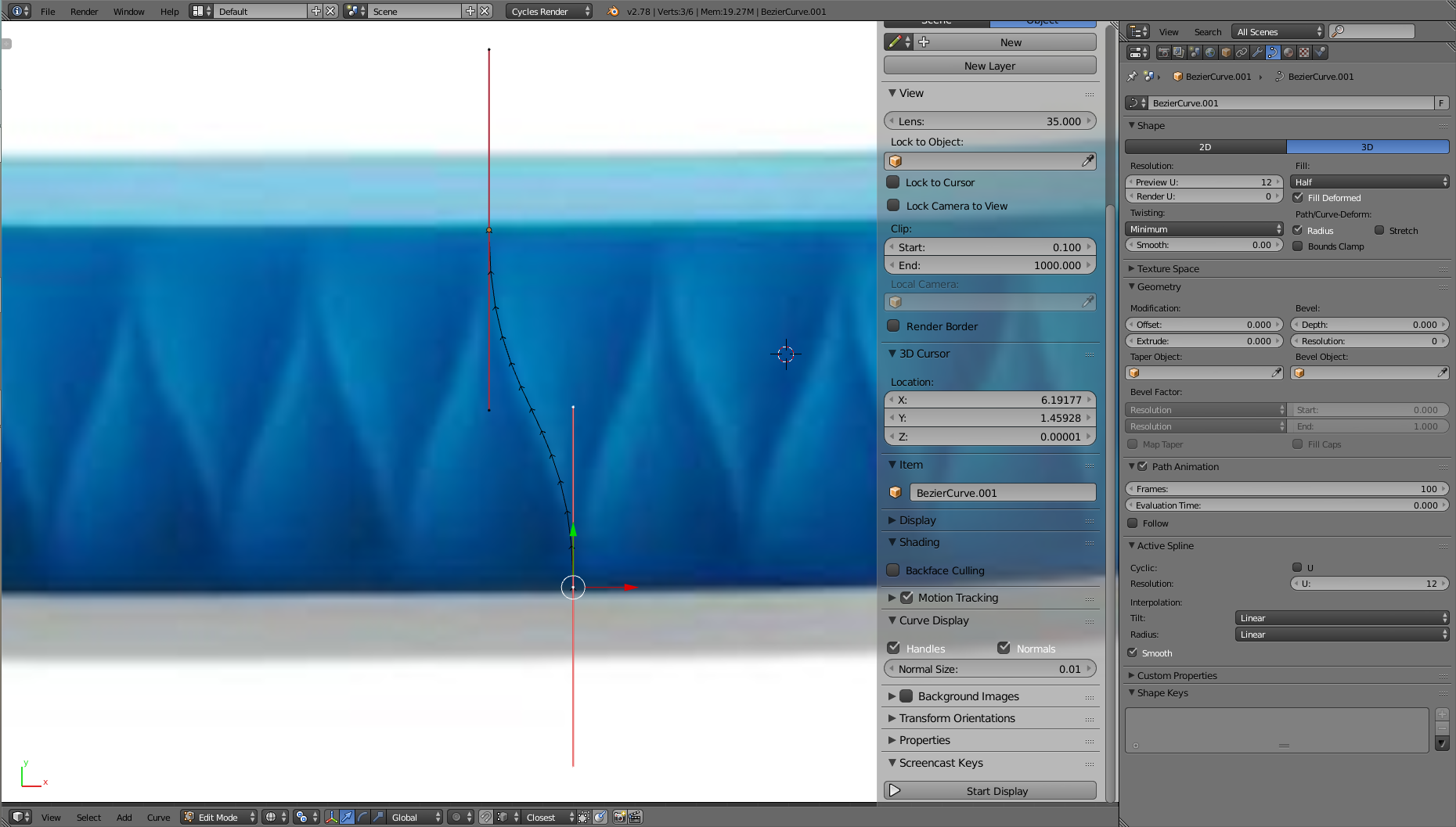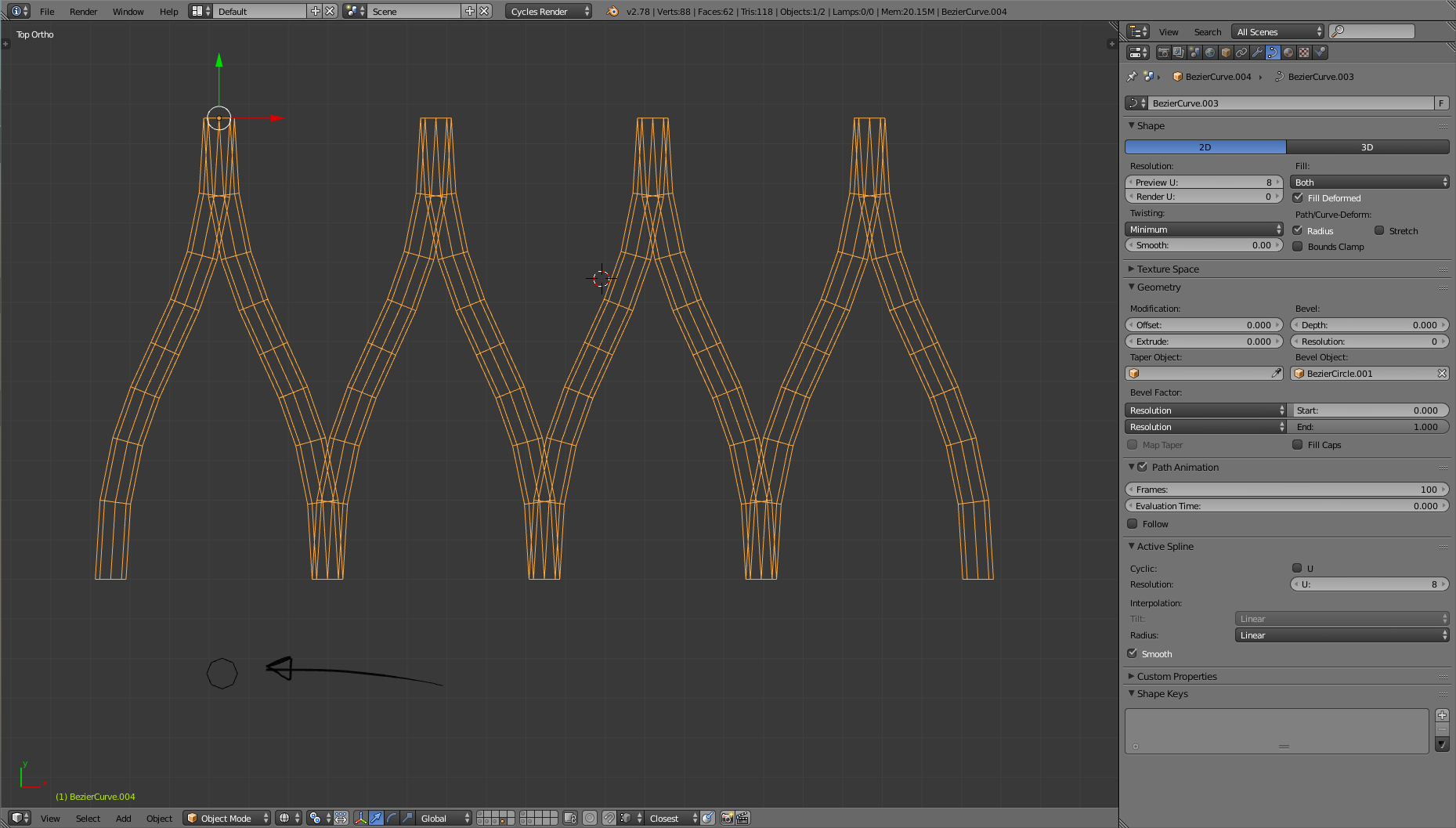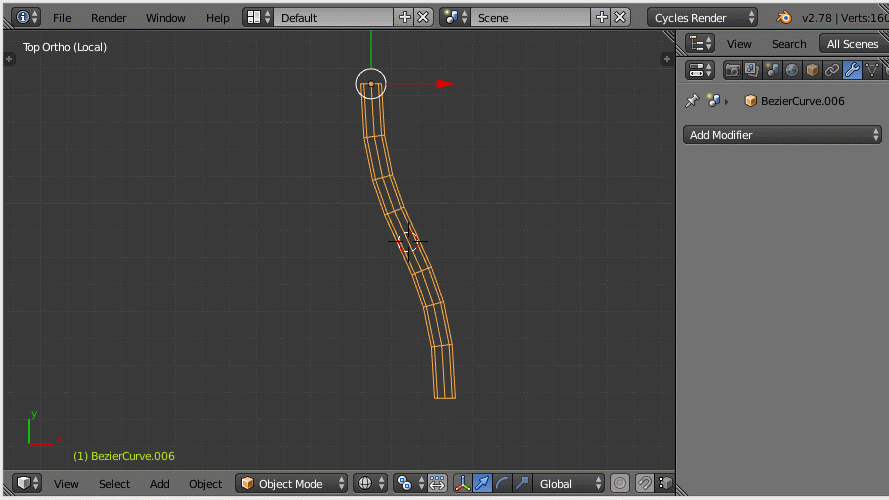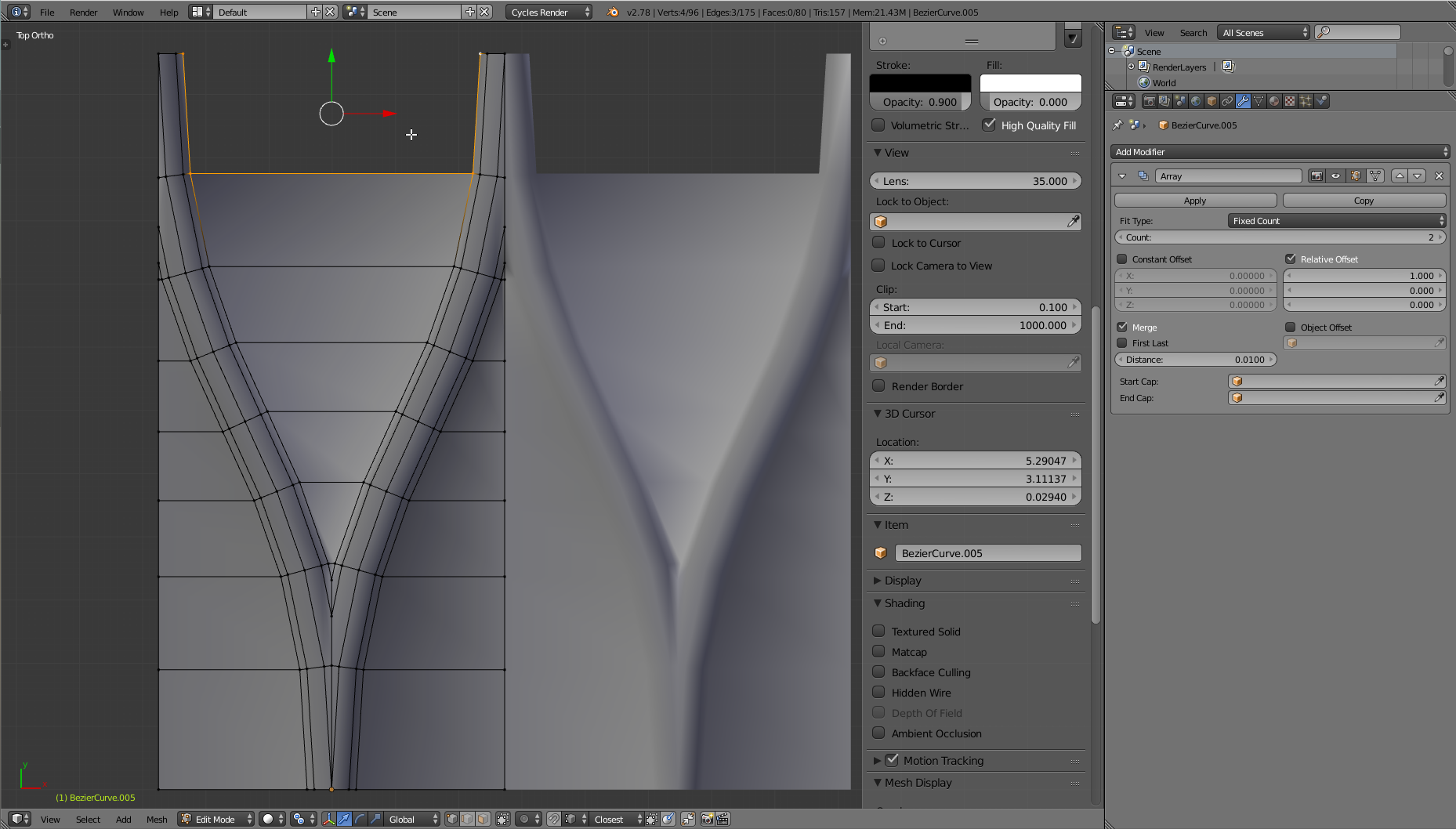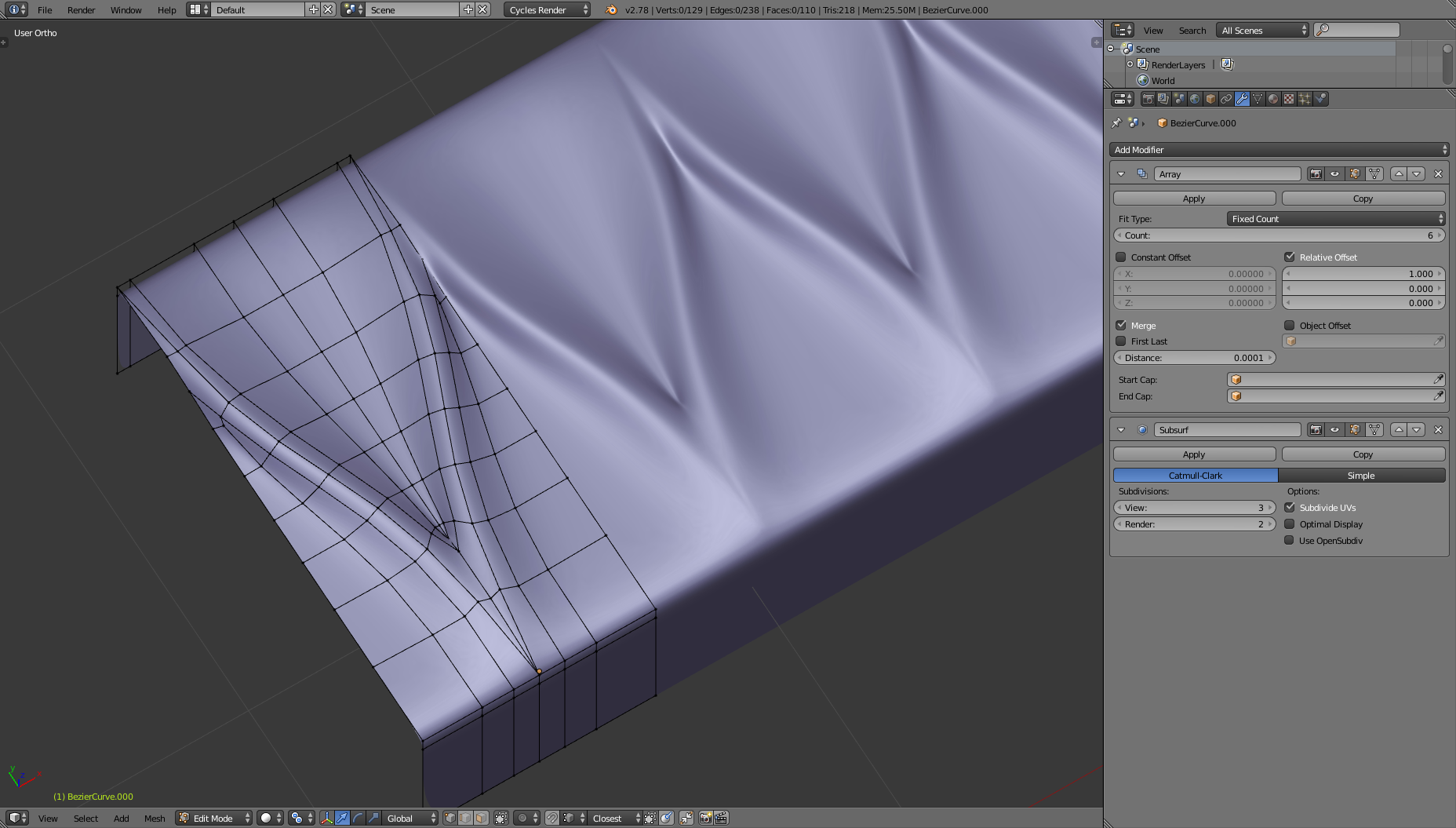Sketch curve, convert to mesh and then refine.
Sketch pattern main feature:
I would start from the sketching the main lines of the pattern with theusing a bezier curvebezier curve. First thing to place are the startingstart and end point. Grab them around upon a reference image. Then adjust the handles orientation to match the reference curve's tangency (vertical) like the omageimage below is showing:
Create main geometry
Now that we have the curve, we can set a bevel objectbevel object (the black arrow in the picture is pointing mine) to start placingplace some faces to work with. At this point you can temporarily add modifiers to the object to get an idea of the final apparence of the pattern.:
Convert to mesh and edit the object
As for the final model I plan to use the subdivision surface modifier, I kept the curve's resolution low before converting the curve to meshconverting the curve to mesh. After this a, run the symmetrizesymmetrize command to mirror and duplicate the mesh around the origin,. Then clean up a bit the model by deleting unecessary faces:
You'll have to repeat the operation to take care of the border in order to achieaveachieve a fully tileable mesh. Fill the voids with the faces paying attention to not work outside the imaginary boundaries of the figure. You should come up with something similar. to the image below:
Final retouches and modifiers
Now that the basic shape is ready you can tweaktweak each verticesvertex position manually, with proportional edit enabled, or even with the sculpting tools, or using the smooth vertex command... in order to achieve the right shape. You can also alteralter the topologytopology with the knife tool, edge collapsing, deleting and creating faces... till you reach a satifying result.

